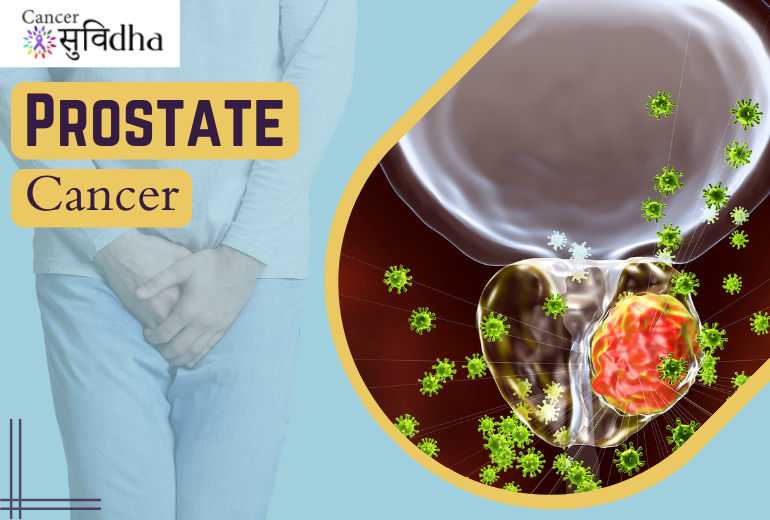Service Detail

Prostate Cancer
Prostate Cancer Specialist Doctor in Delhi
Prostate cancer develops in a small walnut-sized gland in men that produces semen, which nourishes and transports sperm. While some cases of prostate cancer grow slowly and may not require immediate treatment, others are more aggressive, necessitating treatments such as radiation therapy, surgery, hormone therapy, chemotherapy, or other interventions. Difficulty urinating is a common symptom, though early stages often show no symptoms at all.
Cancer is the second leading cause of death among men, responsible for 30% of all deaths in this group. Prostate cancer is the second most common type of cancer in men, following skin cancer, and is the third leading cause of cancer death in males. The majority of cases (90%) occur after the age of 50, with 80% presenting as a localized disease confined within the prostate.
Prostate cancer is diagnosed in more than 2 million men each year and has higher incidence rates among African American and other minority populations. The lack of discussion around prostate cancer remains a significant barrier to addressing this disease, making it essential to raise awareness.
The Role of Zinc in Prostate Health
Zinc plays a crucial role in cell growth and enzymatic activity, as well as in regulating apoptosis (programmed cell death) and DNA synthesis. The prostate gland produces about 20% of the body's zinc. However, high levels of zinc may accelerate tumor growth. The prostate also produces testosterone, essential for maintaining libido, erectile function, mental alertness, and muscle mass.
Symptoms of Prostate Cancer
Early-stage prostate cancer may not present any noticeable symptoms. However, in more advanced stages, the following symptoms are common:
- Trouble urinating
- Frequent urination
- Decreased force of urination
- Difficulty starting or stopping the urine stream
- Blood in semen
- Pain or discomfort in the pelvic area
- Bone pain
Regular check-ups are crucial, and if you experience any of these symptoms, it is important to consult a prostate cancer specialist in Delhi, such as Dr. Sajjan Rajpurohit.
Detailed Symptoms of Prostate Cancer
Trouble Urinating:
This issue could be related to several factors, such as infections or other conditions affecting the bladder. If drinking plenty of water and regular bathroom visits don't resolve the issue, it may be time to see a doctor.
Frequent Urination:
Known medically as polyuria, frequent urination refers to the need to empty the bladder more than eight times within a 24-hour period. This can be caused by conditions like diabetes.
Decreased Force of Urination:
A decrease in the force of urination may result from significant physical stress or irregularities in food intake and sleep patterns. It is essential to determine the underlying cause to manage it properly.
Difficulty Starting or Stopping the Urine Stream:
This issue can be caused by various health conditions, such as urinary tract infections (UTIs), kidney stones, or dehydration. It is a common problem that can worsen with age.
Blood in Semen:
The presence of blood in semen, known as hematospermia, can be concerning but is often not a sign of a serious health condition.
Pain or Discomfort in the Pelvic Area:
Pelvic pain may be a sign of infection and can affect internal organs like the pelvic bones, abdomen, or colon.
Bone Pain:
Chronic or sudden bone pain over several months could be an indicator of advanced prostate cancer, as this type of cancer often spreads to the bones.
Stages of Prostate Cancer
Stage 1:
In this early stage, prostate cancer is small and grows slowly. It is often undetectable during a physical exam and usually presents no symptoms.
Stage 2:
At this stage, cancer can be detected during a physical exam as it is larger than in Stage 1. Stage 2 is further divided into:
- Stage 2A: Includes T1 tumors with high PSA levels or T2 or T2B tumors with low PSA levels.
- Stage 2B: Includes T2C tumors or those with high PSA levels.
Stage 3:
In this stage, the cancer has grown rapidly and may have spread beyond the prostate to the seminal vesicles. Treatment at this stage can often reverse the condition.
Stage 4:
Stage 4 is the most advanced, with cancer spreading to nearby organs such as the rectum, bladder, or lymph nodes, and possibly to distant organs like the bones. This stage is usually not curable.
Treatments for Prostate Cancer
Surgery:
If the cancer is confined to the prostate gland, a radical prostatectomy may be performed to remove the entire prostate gland, surrounding tissue, and nearby lymph nodes. This can be done using a laparoscopic, robotic, or open surgical approach.
Hormone Therapy:
This treatment blocks hormones that fuel cancer growth, particularly testosterone, to slow down or shrink the tumor. It is often used before radiation therapy or in advanced cases.
Immunotherapy:
Immunotherapy harnesses the body's immune system to attack cancer cells, either by enhancing immune cells' ability to detect and kill cancer cells or by genetically engineering immune cells in a lab and reintroducing them to the body.
*hemotherapy:
Chemotherapy involves the use of drugs, administered intravenously or orally, to kill cancer cells and reduce tumor size. It is typically used for high-grade or fast-spreading prostate cancers that have metastasized to other parts of the body.
